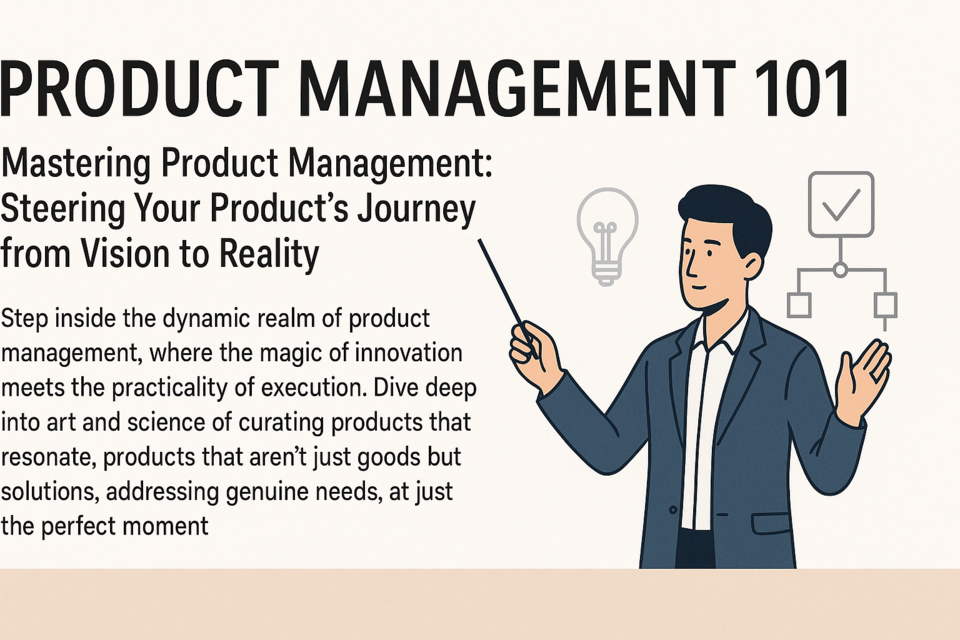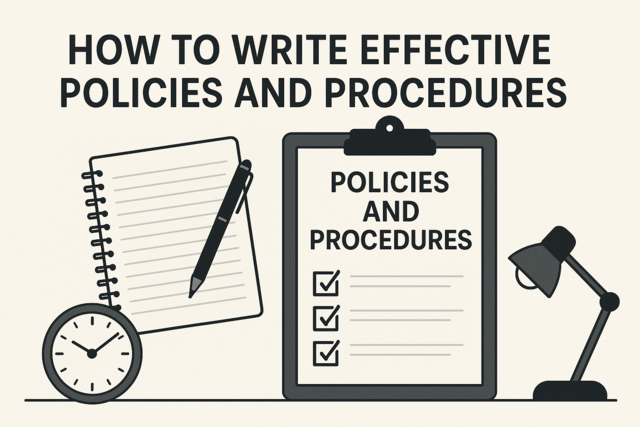Mentoring is the process where an experienced person helps someone with less experience develop skills and knowledge that will advance the less experienced person's professional growth. Typically, mentors represent where the less experienced person wants to go or wants to be in their career. Mentors have already achieved the level of success the less experienced person – or protégé – wants to reach.
Mentors can teach about specific issues. For example, if the protégé wants to learn about being a stronger salesperson, the mentor can teach them ways to reach that goal. They can also coach the protégé on specific skills, such as sales, and also challenge the protégé to go beyond his or her comfort zone. A mentor shares resources and networks with the protégé. He or she focuses on the protégé's development. In short, a mentor helps the protégé meet career goals to take the next step in his or her career.
Why You Need a Mentor
Your career track is where you want to go with your career. But how are you going to get from Point A to Point B, then to Point C? It goes without saying that you'll set goals.These goals will probably include expanding your skill set, networking, and maybe even continuing your education. Having a mentor can help you do all these things, as well as make getting from one point to the next a little easier.
As we said, a mentor is typically someone who has achieved the type of success you want and has more experience than you do. A mentor can help you build networking relationships, coach you as you learn and build new skill sets, and help guide you from where you are now to where you want to be.
A mentor can:
-
Help you by giving you advice to deal with problems involving a co-worker or boss
-
Help you gain the skills you need to do your job better or advance to another position
-
Share his/her network with you and open up new opportunities from that network
-
Help you evaluate job opportunities
-
Evaluate your career track and make suggestions
-
Help you meet your goals for your career by providing insight and "best steps"
-
Encourage you to accept challenges and take risks
-
Help you stay on your career track
Think of the career track graphic we showed you earlier in this course (shown below).
A mentor will help take you from point A (circled in red) to point B (circled in blue) by helping you develop the skills, relationships, and knowledge you need to advance to the next step in your career.
The Benefits of Mentorship
There are dozens of benefits to having a mentor, including the confidence that having someone "on your side and encouraging you" can give. However, a mentor can also help you in the following ways:
-
Get advice. Mentors can guide you on what it takes to get ahead in your career. They can also listen to your ideas and help you plan out a course of action.
-
Gain knowledge and skills . A mentor will help you figure out the knowledge and skills you need to get head. Sometimes a mentor will teach you what you need to know, or they'll tell you where to find the information you need.
-
Build your network . A mentor can help you build and expand your list of professional contacts.
-
Communication . A mentor can lead by example, as well as teach. You can learn how to communicate more effectively. This will help you in your career.
Discovering What You Need in a Mentor
Choosing a mentor depends on your career goals and what you want to gain from having a mentor. Then you can choose which mentor is best for you.
Start out by answering these questions:
1. What are your short-term career goals?
2. Where do you envision yourself in one year?
3. Where do you envision yourself in five years?
4. What knowledge and skills do you need to get where you want to go?
5. What things could a mentor provide that will help you?
If you answer these questions, it will shed a lot of light on what mentor would be best for you. You might want to seek someone who is high ranking within your company because you want to learn from their career. You may also decide that you want a mentor who is just a little above where you are now, because they can help you with specific areas where you need to grow.
Choosing a Mentor
Once you understand your needs in a mentor, you want to find a mentor who likes to learn and who is concerned with their own career development. You don't want a mentor who has lost the "gusto" for their career, or who is happy with where they are – and doesn't care if they advance.
You also want to find a mentor who enjoys mentoring. Your mentor should derive some enjoyment from mentoring you and seeing you succeed under their mentorship. Find someone who can set a good example for you, both in their career and the standards they set for their own work.
You can approach anyone you want and ask them if they would mentor you. However, if you can't think of any possible mentors on your own, ask colleagues and managers. Some companies even provide mentorship programs. You can also find mentors outside of work by attending meetings, community events, and trade shows.
Approaching a potential mentor is up to you. Mentors aren't going to come up to you and offer. When you approach a mentor, you'll want to have already developed a plan for your mentorship. The questions you answered earlier in this article will lay out your plan for you. You'll want to share your goals with your potential mentor, your accomplishments, and your needs and objectives. Explain why you want a mentor. If the person you approach agrees to be your mentor, you'll then want to discuss what you both want to accomplish during the mentorship.
Having More Than One Mentor
Finding one mentor, as we discussed above, serves your short-term goals. That one mentor can help get you where you want to go in the next few years. Of course, though, when it comes to your career, you also think about your long-term goals.This is where having several mentors can help.
1. What would you like to accomplish in your career in the next five years?
2. What skills do you need to get there easier?
Based on your answers to those questions, make a list of people who could be possible mentors. Choose five or six that you want to become your mentors. Maybe one person is where you want to be in five years. Perhaps one is great with communication and being a leader. Another might have achieved the degree you'll need to get where you want to go and can help direct you as you embark on continuing your education.
The types of mentors you should seek out are listed below:
-
The industry exper t . This is someone who has accomplished what you are trying to do in your career.
-
The sponsor . The sponsor is a senior member of your company and can open doors for you. Be memorable so this person is aware of you.
-
The no-nonsense . This is someone who will tell you how it is, even when you don't want to hear it. A person like this will cheer you on to accomplishing your goals.
-
The listener . The listener is sympathetic. They will allow you to rant when you need to so you can regain focus.
-
The connector is a member of the community or your organization. The connector has authority, the ability to influence other people, and a large network of contacts.
Evaluating Your Mentors
You won't have just one (or one group) of mentors over the course of your career. In fact, your mentors are likely to change every few years as you grow in your career and journey down your career path.
Who is your boss? Your boss is the one who supervises you and the work you do. If your boss likes you, you'll keep your job and advance in the company. Knowing how to manage your boss will help to ensure that your boss continues to like you, and that your career continues to develop under his/her supervision.
Who Your Boss Is Not
Part of managing your career is being able to manage upward relationships, specifically the relationship with your boss.That said, part of being successful in doing that is knowing who your boss isn't. If you mistake your boss for someone he/she isn't, it can be damaging – even devastating – to your career.
Your boss has an allegiance to the company, not to you. This means that the boss' loyalty lies with the company's best interests and not with yours. If your interest goes against that of the company, don't expect the boss to take your side, no matter how great of an employee you've been up until that point.
Your boss is not your friend. Your boss is your boss. You shouldn't bring your personal life or problems to your boss except for the normal tidbits about the kids, your spouse, or interesting things that happened that reflect positively upon your personal brand.
In addition, your boss is not a referee. Do not bring problems with co-workers to your boss unless they directly affect your productivity, or the integrity of the company. Resolve differences with co-workers yourself. Avoid disputes whenever you can. Your boss is not there to babysit you and the others around you. If you make him/her feel like you have to be babysat, your career will suffer for it.
Your Relationship With Your Boss
You spend a lot of time at work. Even if you only work 40 hours a week, the majority of your waking hours are spent at work. Chances are that you spend more time with the people you work with than you do your own family and loved ones. This can make the line between friendship and a professional relationship become blurry for you and your boss, especially if your boss likes you and you like him/her.
However, being friends with your boss is never a good idea. Having your boss as a friend can make it harder for him/her to give you direction at work – and it may make it harder for you to take the directions.
Co-workers will also start to notice if you become friends with your boss. The one thing co-workers don't like is the feeling that someone is trying to get ahead in their career by making friends, instead of doing a good job. You don't need to have friction between you and your co-workers.They can always complain to your boss's boss, and they can make all that time you spend at work miserable for you. Both things jeopardize your career path.
Plus, friendships can sour anyway. If your friendship with your boss soured or ended, what would happen to you at work? People are human. We try to keep our emotions out of the decisions we make at work, but sometimes we just can't help it. Imagine a disagreement between you and your friend (your boss) affecting your performance review, your next raise, or your next promotion. Keep the relationship you have with your boss friendly and amicable, but also keep it professional at all times.
Setting Boundaries
In the interest of being a good employee, so that you get raises, promotions, and keep advancing in your career, as well as the company, it may be tempting to be the person who does it all. In other words, it may be tempting to become the person who is married to your work because you feel like it will get you ahead.
It won't. Failing to set boundaries and becoming married to your work won't get you anywhere but burnt out. The career and personal life balance is very important. Unless you're in a field that requires you to be on-call, the times you're not at work should be filled with your personal life, not waiting for work to happen.
-
Make it a habit not to respond to work email on weekends or while you're on vacation. It'll add stress to you, and it lets the company know that you'll give up personal time.
-
Don't give your cell number to the office if you have a landline at home. If the office has your cell number, you can set the ringtone so it's silent when you're not at work.
-
There may be times when a project requires extra time, attention, or work, but know the difference between something that needs your attention now and something that can wait until you get back into the office.
The attitude you display at work will influence what your boss and management in your company think of you. It's important that you behave professionally at all times. This means you can't let your emotions show, especially when those emotions are anger or frustration.
However, those negative feelings, no matter how much you suppress them, can negatively affect you and your job performance. Even if you don't display emotions, your boss will notice that you seemed stressed. He/She could take that to mean you can't handle your job.
To manage or alleviate your emotions, ask yourself these questions:
-
Can you make changes to your workflow to alleviate some of the stress?
-
Can you make changes to your job responsibilities? Maybe you can delegate some of your tasks.
-
Can you discuss your concerns with your boss in a way that makes them about your productivity and how you can improve your contributions?
-
Do you eat lunch at your desk every day? If the answer is yes, try to change the scenery during lunch. Get away from your work for a while, even if you just go for a walk.
-
Do you sit at your desk all day? Staring at the computer for hours on end can be hard on your mind and body. Get up and take a break every now and then. These quick breaks to stretch your legs and your mind will alleviate stress and increase your productivity.
No matter what you do, never vent to co-workers about your boss or your job. In addition, never take to the Internet to vent. Don't assume your boss won't find you on Facebook or Twitter, and see your posts. Even if you have your privacy settings set to the maximum allowed, there's always someone who knows someone who can take a screenshot and share your complaints, gripes, and general ill-will toward the company, your boss, and your job.
Instead, if work gets too stressful and you aren't sure you can deal with it, ask your mentor for help. They can give you ideas for communicating with your boss and resolving the issues at hand.
Improving Your Reputation
The one thing you do want your boss to know is how invested you are in your job. You want your boss to know all you're doing, and how you're going above and beyond for the company. The more your boss knows, the more confidence he/she has in you.The more confidence, the easier it will be for you to advance.
However, showing your boss that you're focused doesn't mean bragging to him every chance you get. It means showing that you're focused in how you work.
-
Keep a task list of things you need to accomplish in a day. If you haven't completed all tasks by the end of the day, address those tasks and figure out how to take care of them.Tell your boss you're doing this, and keep your boss updated on the tasks.
-
Keep details about a project on a spreadsheet or in a database. Update the information as often as you can. This way you have details to show your boss at each stage, as well as a clear direction on the next stage.
-
If you have extra time at work, figure out ways you can increase your responsibilities to fill the day. When you've got it all thought out and organized, present it to your boss. It makes you look like you're going above and beyond, but it also gives you a chance to refine new skills and position yourself for advancement.
The Toxic Boss
In an ideal world, you'll get along with every boss you have.The boss will like you. You will like your boss. Everyone will be happy. However, this is not an ideal world.There may be times when you come across a boss you just can't get along with, no matter what you do. The boss isn't happy with anything you do. He/She blames things on you that aren't your fault. You get yelled at, your boss favors anyone who is not you, and your boss is trying to derail you. You feel like your boss is trying to make you quit your job or get you fired. If the situation is that bad, you're probably right.
Even though a toxic boss can be hard to deal with, it can be done. Before you do anything else, try to resolve the problem yourself if you can.
Ask yourself:
-
Is there a way to solve the problem between you and your boss?
-
Can you talk to your boss and work through it together?
Have you discussed your concerns with your mentor? Sometimes they can advise you on ways to approach your boss, or help you find a solution.
If you can't solve the problem yourself, it may be time to go to HR. However, remember that HR might not be a neutral party. They could take the side of your boss, or they could already be aware of your boss' bad behavior, but aren't ready or willing to do anything about it. Instead, try to protect your reputation and good name. If HR can't or won't solve the problem with your boss, it's time to plan your exit from the company and move on to another job. Don't worry about it, though. It happens. Your career plan allows for change. And when the next company asks why you left your last job?
"The company was moving in a different direction."
Managing your relationship with your boss is important to your career. However, when you find it's impossible to manage that relationship, it's time to make a move to a different company and continue on the next step in your career.































